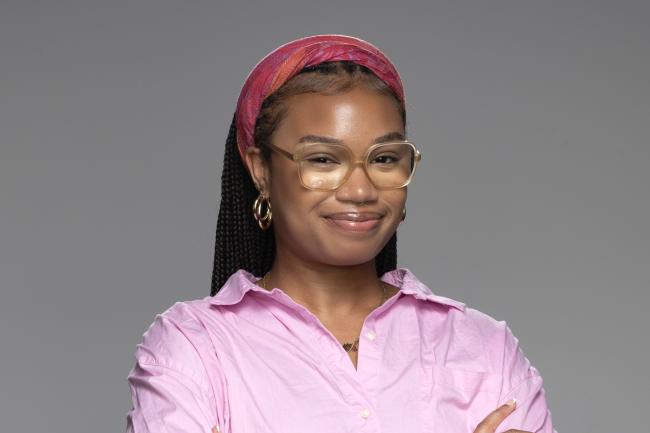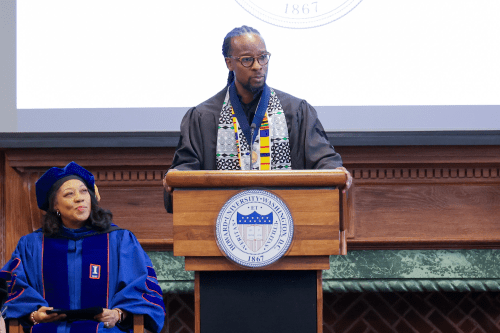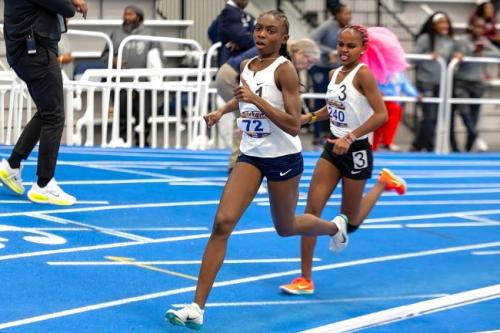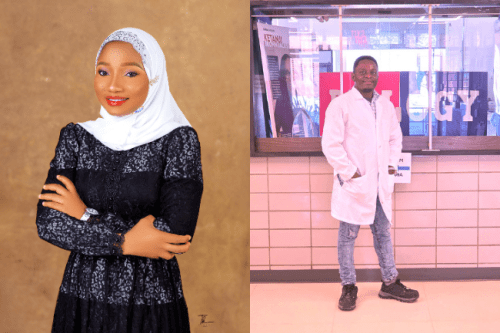At the intersection of culture, identity, and media, Trinity Webster-Bass, a graduating senior at Howard University, has been leading innovative research that examines how music created by Black women shapes identity, empowerment, and political thought among young Black women.
A double major in broadcast journalism and Afro-American studies from Jacksonville, Florida, Webster-Bass is a member of the prestigious 2021 cohort of the Annenberg Honors Program in the Cathy Hughes School of Communications. Her senior thesis—a 50-page study blending qualitative and quantitative research—explores the messages found in rap and R&B music produced by Black women and how those messages impact their listeners, particularly Howard students.
Her research analyzed the work of artists spanning generations—from Lauryn Hill, Missy Elliott, and Lil' Kim to Megan Thee Stallion, Doja Cat, and Sexy Redd. Webster-Bass coded recurring themes in lyrics and music videos, identifying patterns around sex, money, ego, relationships, and friendships. One of her major findings was a strong positive correlation between the prevalence of certain themes, particularly sexual empowerment, and how young Black women at Howard perceived their own agency and body autonomy.
She also conducted surveys to measure how these themes impacted students’ views on themselves and their political beliefs. Interestingly, while she expected social media to play a significant role in shaping political identity, her findings showed that most students already possessed a strong political foundation prior to online influence. Social media often reinforced existing beliefs rather than changed them.
“Anything you consume repeatedly—what you hear, what you see—will affect you,” Webster-Bass explained. “Music is one of those things that subtly but powerfully shapes how we see ourselves.”

The research not only offers insights into how music is a tool for self-definition and cultural expression, but also how it serves as a communication platform for womanist ideologies and Black empowerment. Webster-Bass hopes her work will eventually be published in an academic journal. For now, she’s sharing highlights of her findings while continuing to make waves in journalism and audio storytelling as a reporter for The Hilltop and a contributor to Howard’s H2 News Service.
As she prepares to graduate, Webster-Bass leaves behind a compelling example of how research at Howard University continues to center Black voices, challenge cultural narratives, and elevate scholarship rooted in lived experience. Her work reflects the power of art not only to entertain—but to empower.





